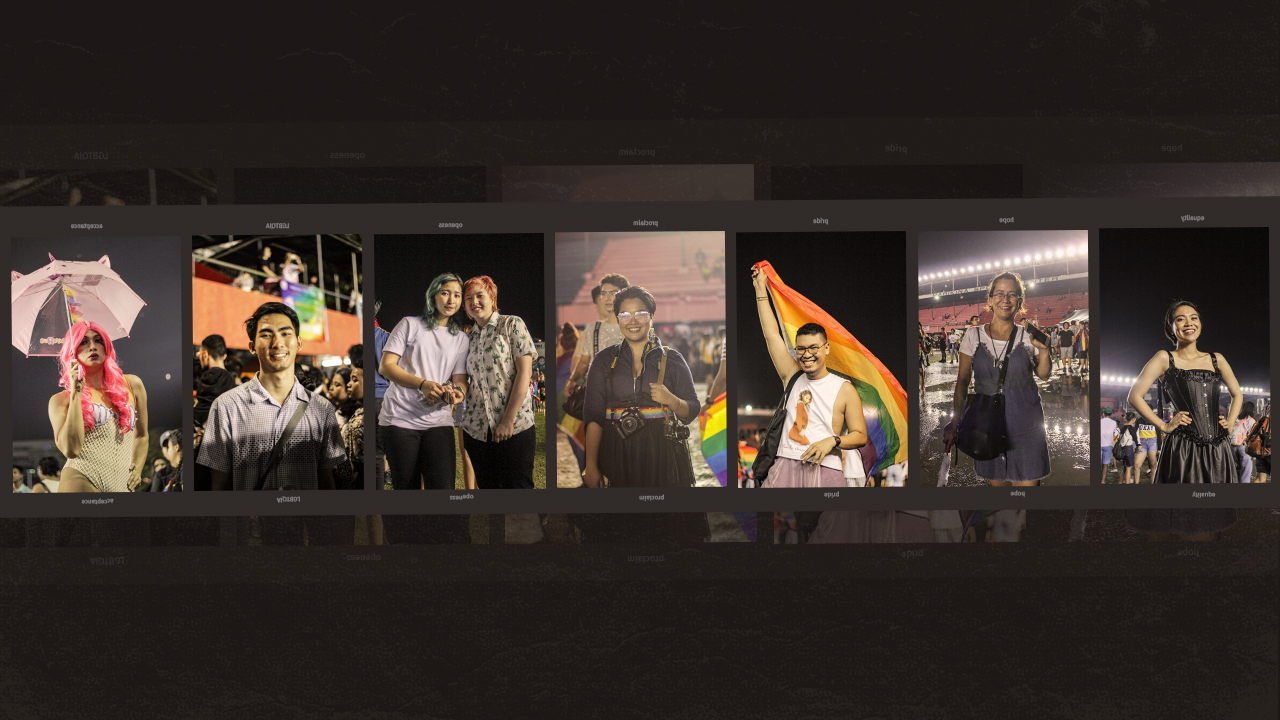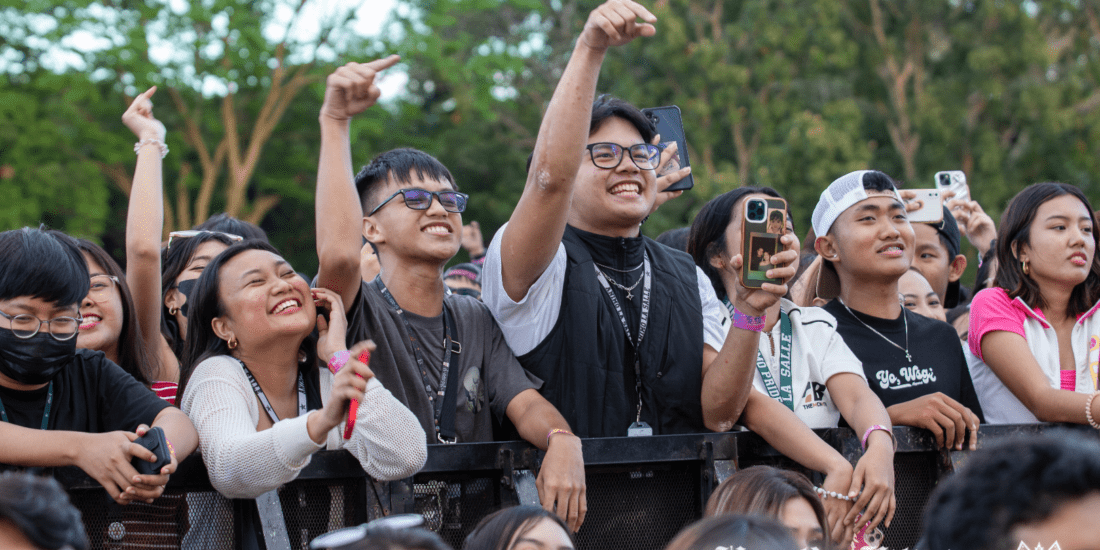Portraits at Pride: What does this year’s Pride teach us?
This year’s Pride unraveled the very core meaning of its existence: a protest. Far from the festivity it created, Pride is not just a celebratory event that gathers all the members of the LGBTQ+ community and its allies; it also stands as an avenue to advance the rights of the community and highlight issues and situations needed to be addressed.
Aside from the record-breaking 70,000 attendees during the Metro Manila Pride March last June 29, here’s what we have achieved and learned from this year’s Pride month.
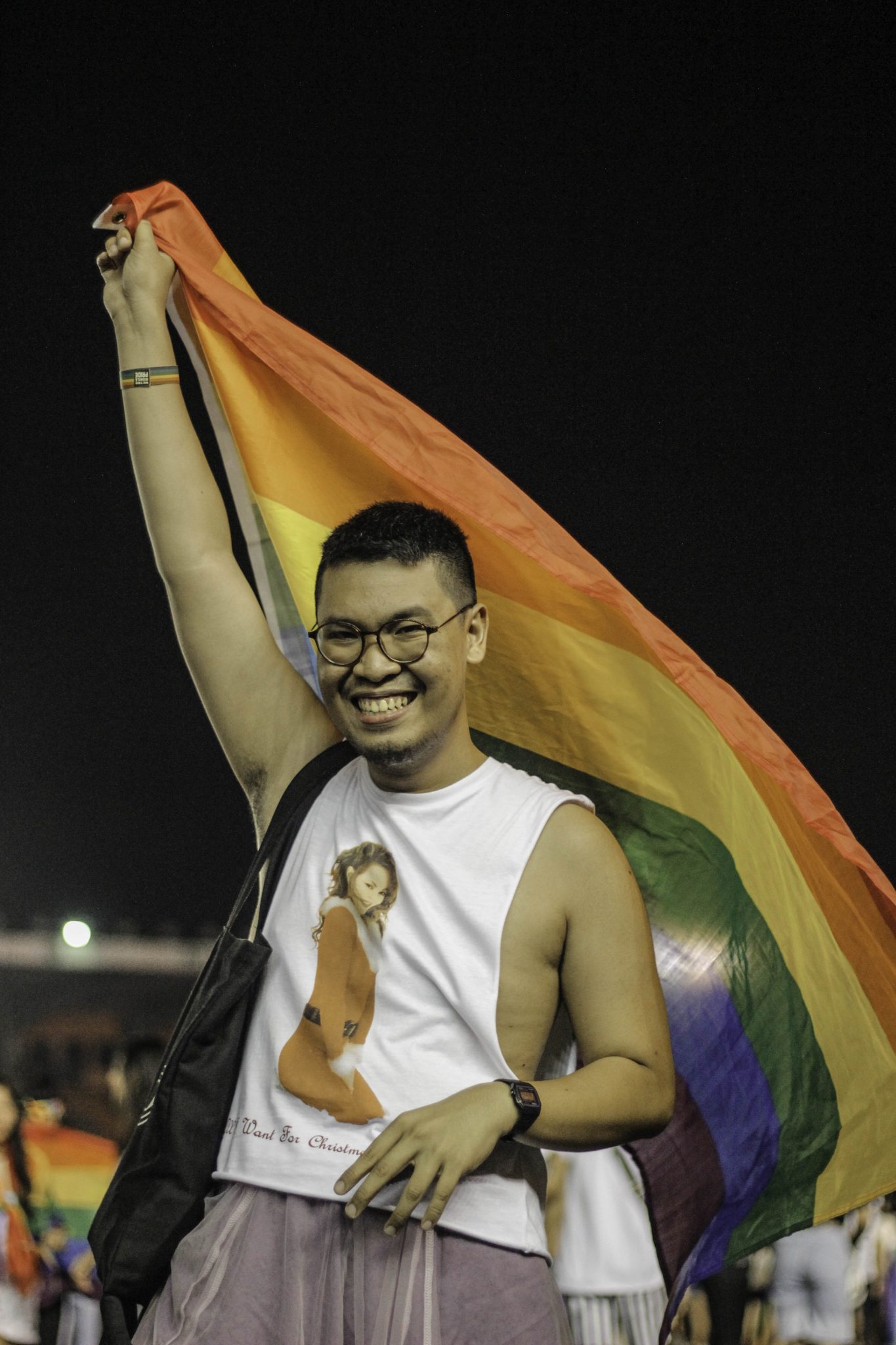
Vin, 24
“Pride is about celebrating us as a whole and it only happens once a year so the gathering of everyone is a big thing for us. Whenever it happens, everybody’s really nice and accepting. Pride is a celebration for the LGBTQ+ community.”
Where it begins
Pride attempts not only to bring the members of the community closer, but also to push each individual toward accepting themselves first. The movement reflects how self-acceptance is a vital motive in advancing one’s self. Through acceptance of their truest desires and identities, a spark is ignited for everyone to see.
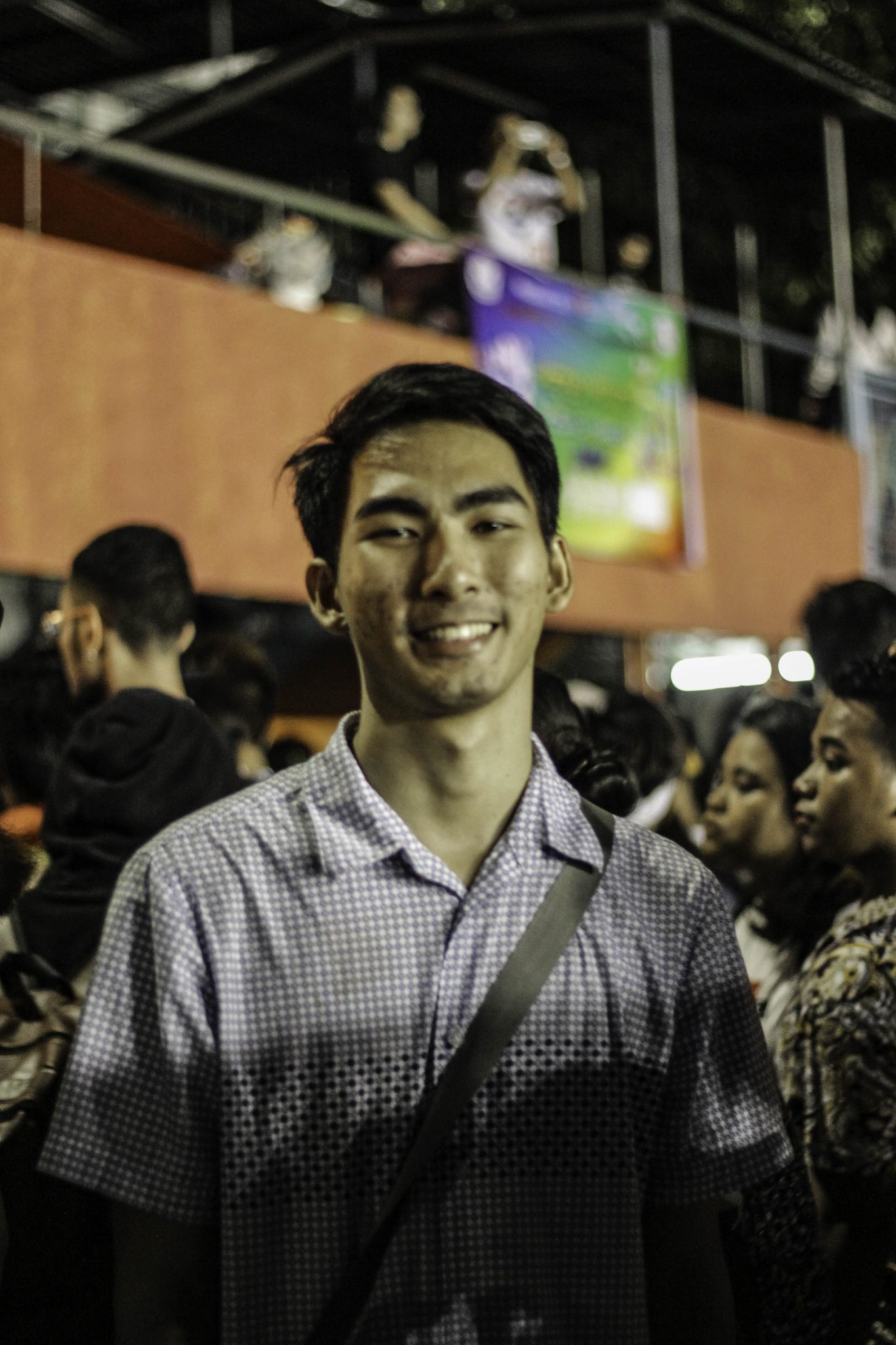
Kenneth, 21
“For me, Pride means a community na pwedeng-pwede akong maging kung ano ‘yung tunay ‘kong sarili.”
This is one of the things that this year’s Pride showed: that accepting ourselves and realizing that we deserve the rights that others have too which leads to the conclusion that there is something to be fought for. And this is not just some mere personal aspiration of getting something that we want; it is a fight that is deeply rooted from patriarchal and heteronormative ideals we were forcefully lived through the moment we were born. Acceptance is just a small spot of a bigger picture we are supposed to be seeing.
Of course, it’s not everyday that the LGBTQ+ is accepted whenever they go. That’s when the challenges of this community arise—the proliferation of hate culture stemming from machismo and patriarchy built from centuries of men’s domination. Pride strongly creates a safe space for these individuals who are oppressed for being themselves.
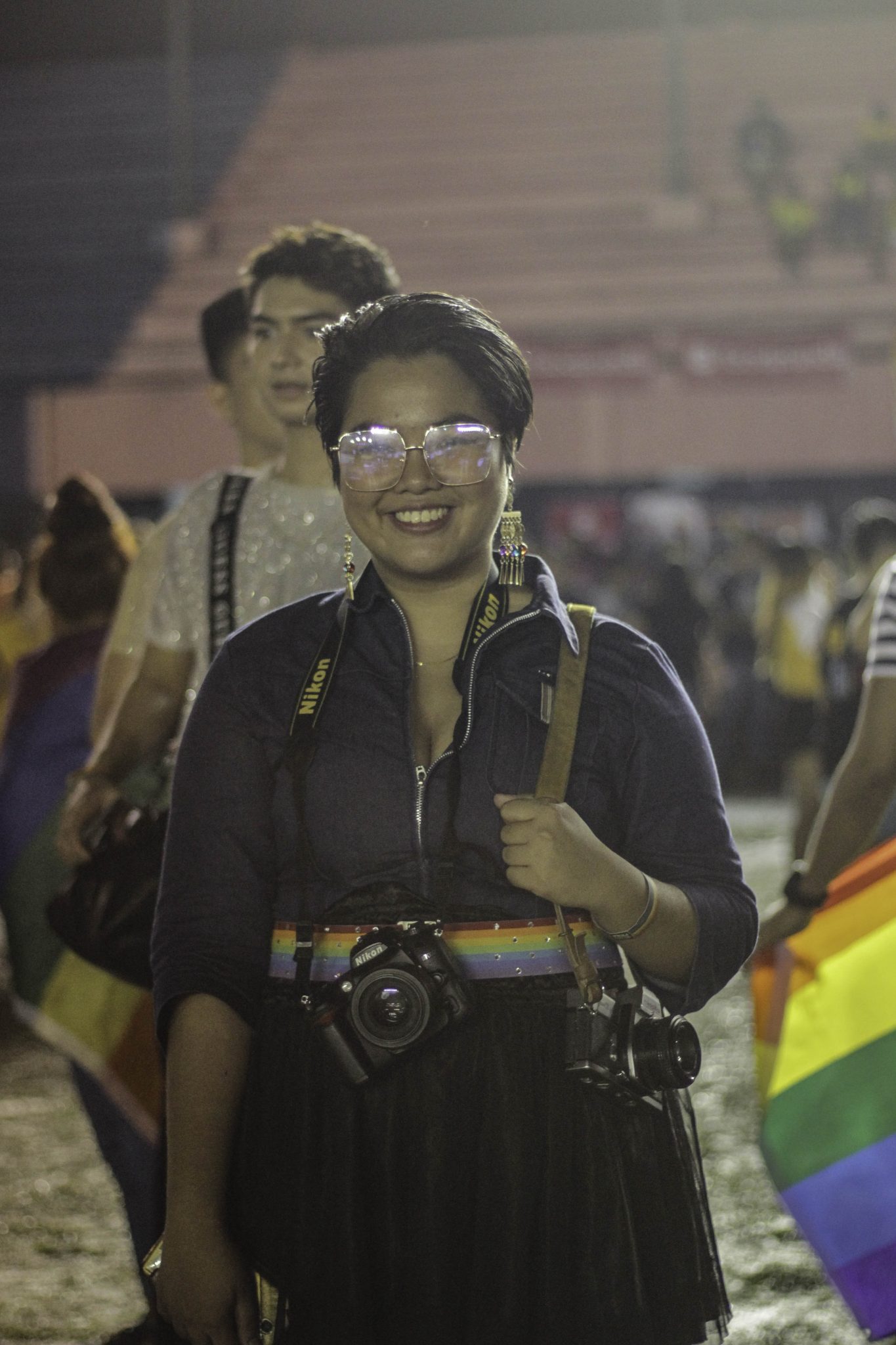
Kir, 24
“For me, pride is an avenue for people to express themselves freely kasi it’s not all the time that people will accept you wherever you go. Kahit ‘yung iba dito siguro, they’re not out to their parents yet, but still, they have a place. It’s a chance for them to find somewhere where they belong.”
Living through the spectrum
Compassion comes after acceptance, or vice versa. Similarly, the two deliver the message of Pride and of the community that hate and indifference have no place in this fight, and love is the central core of why we join together to protest ourselves.
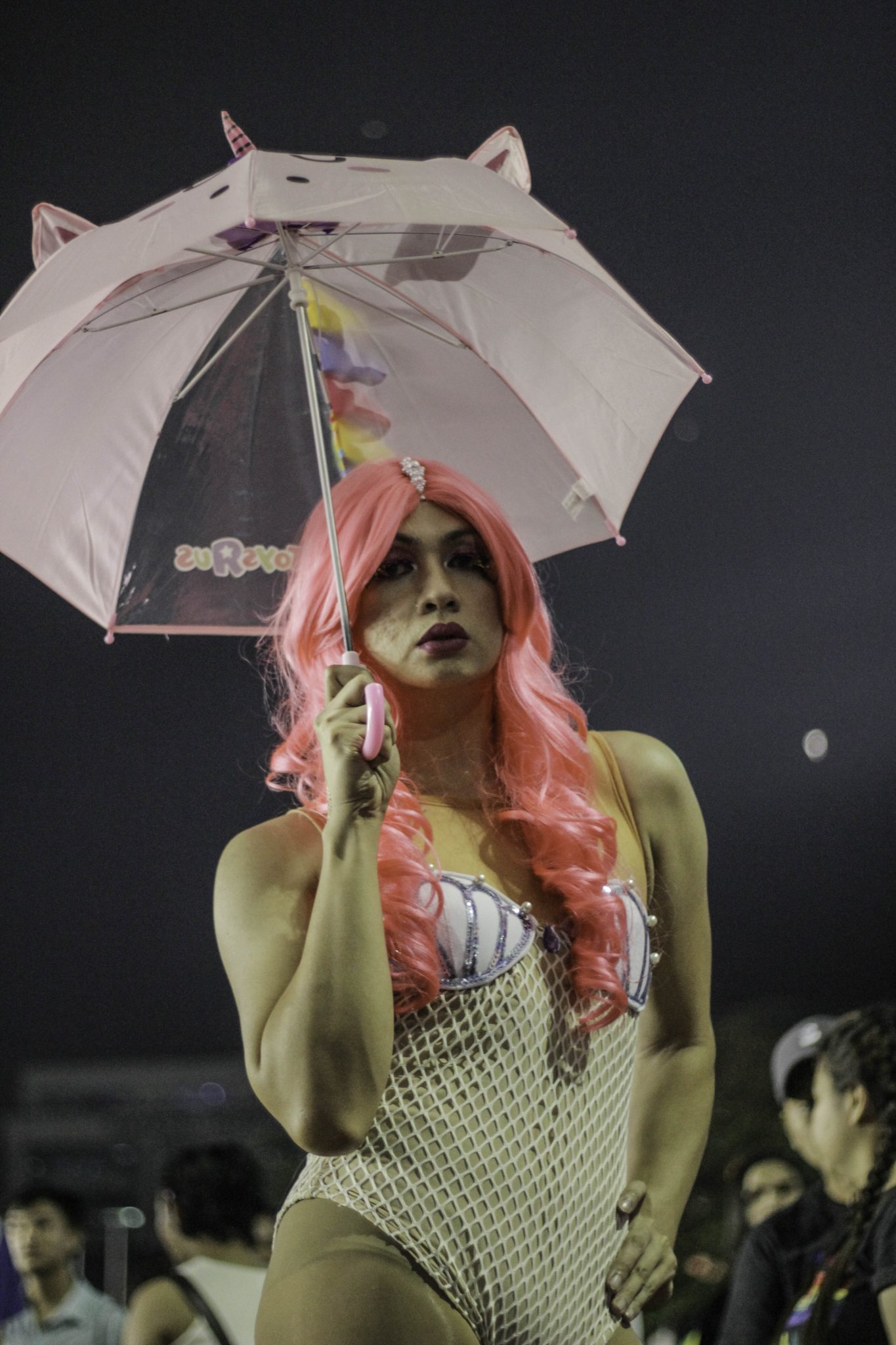
Ron, 31
“Pride is really, really special to me because you get a chance to show who you really are, to show your true colors. Pride is very important for me as well because I work in a company that embraces diversity and I think that is very important right now. Ngayon feeling ko, mas kailangan natin [ipakita] to the older generation and the younger generation that we are not just only special pero marami tayong naitutulong sa ating community.”
The Pride March last June 29 was filled with parents who offered free hugs and comforting words to everyone who has been dismissed by their own families for being gay. Teary-eyed participants who received hugs from these accepting and compassionate parents manifest the idea that acceptance within the family is an imperative part of one’s existence. If there are people who should first accept us, it’s obviously our family. After all, it all starts at home.
However, the culture in which we grew up to can hardly be altered, especially the principles of the older generations, but this is the reason why we continue to educate everyone regarding gay rights. Once we let others see that there’s nothing wrong about being gay, the thread of acceptance might be woven, hopefully into a rainbow cloth that manifests our sheer identities.
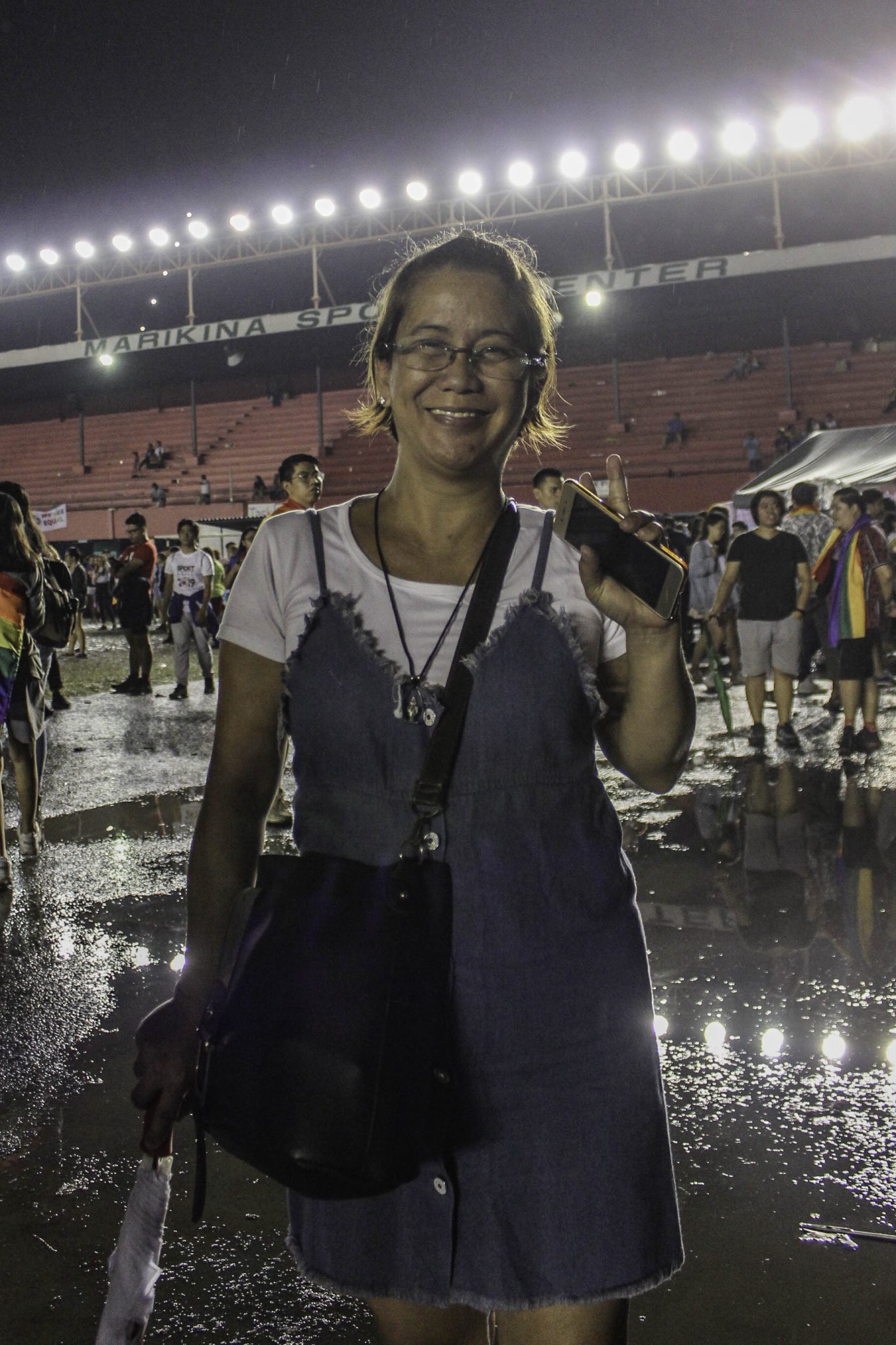
Elnie, 47
“Pride means lowering down your pride to accept these LGBT groups [of] the society. Especially lowering your pride in your heart to open your heart because [personally], I am a mom of a gay. I think that’s the etymological meaning of it, from the root word pride. To lower down your pride, to accept the people, [and] to embrace the equality of each one.”
Beyond the festivity
Perhaps the greatest actualization of this year’s Pride comes from its core as a demonstration. With the #ResistTogether theme, it marked a new milestone in telling the story of Pride as an act of resistance. That this is beyond the comfort zone of everyone in the community as it magnifies the struggle of the LGBTQ+ and all the sectors that are related to it.

Polline, 21
“I think Pride for me is essentially a celebration of our diversity as individuals and acceptance eh. Parang it’s realizing that we as individuals are different and it’s beautiful and it’s okay, there’s nothing wrong with all of that. It’s a celebration of all that. It’s also a protest. It’s a fight na ipinaglalaban natin na there’s nothing wrong with us. It’s something that everyone should accept, so that’s where the protest comes in.”
Pride was born because the gays struggled to pave a way for themselves in the society. Yearly, several members of the community are being killed due to hatred and bigotry. Despite several and various attacks, the community gathers annually to show the act of defiance against those who imprison gays in closets, threatening everyone that going out of it only means one thing—either dishonor or death.
Nonetheless, the struggle shows that the community is not only classified and limited to gays. Its members can be from any sector of the society in which several are oppressed too. They can be contractual workers, students, indigenous people, urban poor, women, children, and other sectors of the societies that fall under the spectrum.
Whatever Pride means to everyone, it is a collective spirit of resistance that draws this community closer to home, because we can find them everyday in different walks of life. And surely, they deserve their own rights too.


